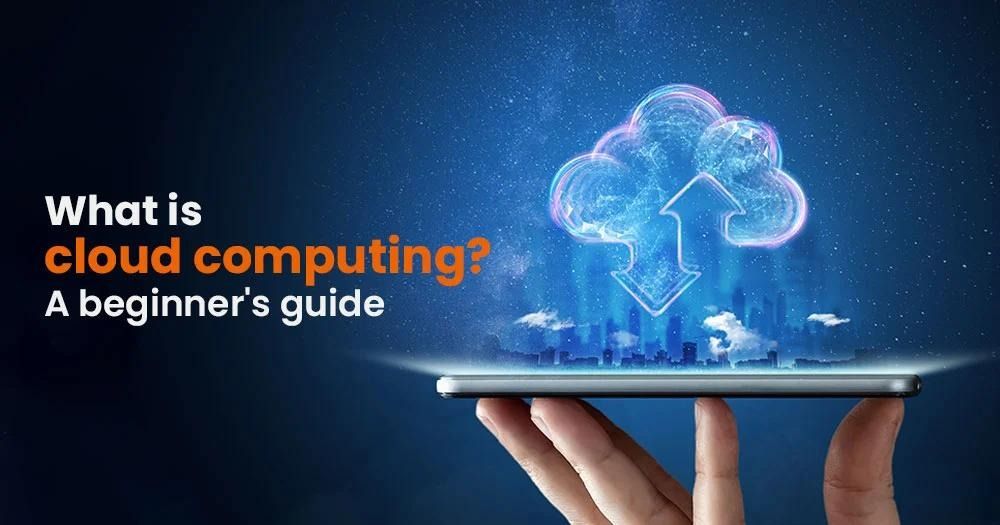

Cloud computing has revolutionized the way we store, access, and process data. Let’s learn more about this topic below with Unicycle Hero, as we explore the fundamentals of cloud computing and its impact on modern technology.
In today’s digital age, cloud computing has become an integral part of our daily lives, transforming the way businesses operate and individuals manage their information. This technology has opened up new possibilities for innovation, scalability, and efficiency across various industries.
Cloud computing refers to the delivery of computing services over the internet, including storage, processing power, and software applications. It eliminates the need for organizations to maintain their own physical infrastructure, allowing them to access resources on-demand and pay only for what they use.
At its core, cloud computing is a model for enabling ubiquitous, convenient, on-demand network access to a shared pool of configurable computing resources. These resources can be rapidly provisioned and released with minimal management effort or service provider interaction.
The concept of cloud computing dates back to the 1960s, but it wasn’t until the late 1990s and early 2000s that it gained significant traction. The term “cloud” is used as a metaphor for the internet, derived from the cloud symbol used in flow charts and diagrams to represent the internet.
Cloud computing offers several key benefits that have contributed to its widespread adoption. These include cost savings, scalability, flexibility, and improved collaboration. By leveraging cloud services, organizations can reduce their IT infrastructure costs and focus on their core business activities.
One of the primary advantages of cloud computing is its ability to provide on-demand access to computing resources. This means that users can quickly scale up or down their resource usage based on their needs, without having to invest in expensive hardware or software.
Cloud computing services are typically categorized into three main types: Infrastructure as a Service (IaaS), Platform as a Service (PaaS), and Software as a Service (SaaS). Each of these service models offers different levels of control, flexibility, and management for the end-user.
Infrastructure as a Service (IaaS) provides virtualized computing resources over the internet. This includes virtual machines, storage, and networking. IaaS allows users to rent IT infrastructure on a pay-as-you-go basis, eliminating the need for costly hardware investments.
Platform as a Service (PaaS) offers a platform for developers to build, run, and manage applications without the complexity of maintaining the underlying infrastructure. PaaS providers typically offer tools and services for application development, testing, and deployment.
Software as a Service (SaaS) delivers software applications over the internet, eliminating the need for users to install and run the application on their own computers. SaaS applications are typically accessed through a web browser, making them easily accessible from any device with an internet connection.
Selecting the appropriate cloud service model depends on various factors, including the specific needs of the organization, the level of control required, and the available resources. Each model has its own advantages and considerations that should be carefully evaluated.
IaaS is ideal for organizations that want more control over their infrastructure and require the flexibility to scale resources up or down quickly. It’s particularly suitable for businesses with fluctuating workloads or those looking to reduce their hardware investments.
PaaS is well-suited for development teams that want to focus on building and deploying applications without worrying about the underlying infrastructure. It can significantly reduce the time and resources required for application development and management.
SaaS is perfect for businesses looking for ready-to-use applications without the need for installation or maintenance. It’s particularly popular for productivity tools, customer relationship management (CRM) systems, and enterprise resource planning (ERP) solutions.
In addition to service models, cloud computing also offers different deployment models. These include public cloud, private cloud, hybrid cloud, and multi-cloud. Each deployment model has its own characteristics and use cases.
Public cloud services are provided by third-party vendors and made available to the general public over the internet. These services are highly scalable and cost-effective, as resources are shared among multiple users. Examples include Amazon Web Services (AWS), Microsoft Azure, and Google Cloud Platform.
Private cloud refers to cloud infrastructure dedicated to a single organization. It can be hosted on-premises or by a third-party provider. Private clouds offer greater control and security but may require significant upfront investment and ongoing maintenance.
Hybrid cloud combines public and private cloud environments, allowing data and applications to be shared between them. This model offers greater flexibility and can help organizations optimize their cloud strategy based on their specific needs and requirements.
Multi-cloud refers to the use of multiple cloud computing services from different providers. This approach can help organizations avoid vendor lock-in and take advantage of the best features and pricing from various cloud providers.
Choosing the appropriate deployment model depends on factors such as security requirements, regulatory compliance, performance needs, and budget constraints. Organizations should carefully evaluate their options to determine the best fit for their specific use case.
Public clouds are often the most cost-effective option for small to medium-sized businesses and startups. They offer quick scalability and require minimal upfront investment. However, they may not be suitable for organizations with stringent security or compliance requirements.
Private clouds are ideal for organizations that need greater control over their data and infrastructure. They are particularly well-suited for industries with strict regulatory requirements, such as healthcare and finance. However, they can be more expensive to implement and maintain.
Hybrid and multi-cloud approaches offer the best of both worlds, allowing organizations to leverage the benefits of different cloud models and providers. These strategies can help businesses optimize their cloud usage based on specific workloads and requirements.
Cloud computing offers numerous advantages that have contributed to its rapid adoption across industries. However, it also presents some challenges that organizations need to consider when implementing cloud solutions.
One of the primary benefits of cloud computing is cost savings. By eliminating the need for expensive hardware and reducing IT maintenance costs, organizations can significantly lower their overall IT expenses. Cloud services also offer pay-as-you-go pricing models, allowing businesses to pay only for the resources they use.
Scalability is another major advantage of cloud computing. Cloud services can quickly scale up or down to meet changing demands, allowing businesses to adapt to fluctuations in workload without significant upfront investments in infrastructure.
Cloud computing also enhances collaboration and productivity by enabling teams to access and share data and applications from anywhere with an internet connection. This flexibility has become increasingly important in today’s remote work environment.
Improved disaster recovery and business continuity are additional benefits of cloud computing. Cloud providers typically offer robust backup and recovery solutions, ensuring that data is protected and can be quickly restored in the event of a disaster.
While cloud computing offers numerous benefits, it also presents some challenges that organizations need to address. These include security concerns, data privacy issues, and potential vendor lock-in.
Security is often cited as a primary concern when it comes to cloud computing. Organizations must ensure that their data is protected from unauthorized access and breaches. This requires implementing strong security measures and carefully vetting cloud service providers.
Data privacy is another critical issue, particularly in light of regulations such as the General Data Protection Regulation (GDPR). Organizations must ensure that their cloud providers comply with relevant data protection laws and regulations.
Vendor lock-in can be a challenge when organizations become too dependent on a single cloud provider’s proprietary technologies or services. This can make it difficult and costly to switch providers or migrate data and applications to a different platform.
To address these challenges, organizations should develop a comprehensive cloud strategy that includes robust security measures, data governance policies, and a plan for managing vendor relationships. Regular audits and assessments can help ensure that cloud solutions remain aligned with business objectives and compliance requirements.
As technology continues to evolve, cloud computing is expected to play an increasingly important role in shaping the future of IT and business operations. Several trends are emerging that will likely influence the development of cloud computing in the coming years.
Edge computing is gaining traction as a complement to cloud computing. This approach involves processing data closer to the source, reducing latency and improving performance for applications that require real-time processing, such as IoT devices and autonomous vehicles.